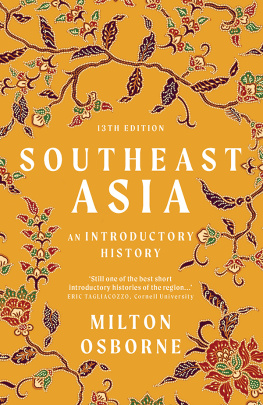First published in 1921
This edition first published in 2011
by Routledge
2 Park Square, Milton Park, Abingdon, Oxon, OX14 4RN
Simultaneously published in the USA and Canada
by Routledge
270 Madison Avenue, New York, NY 10016
Routledge is an imprint of the Taylor & Francis Group, an informa business
This edition published in the Taylor & Francis e-Library, 2010.
To purchase your own copy of this or any of Taylor & Francis or Routledges collection of thousands of eBooks please go to www.eBookstore.tandf.co.uk.
1921 George Allen & Unwin Ltd.
All rights reserved. No part of this book may be reprinted or reproduced or
utilised in any form or by any electronic, mechanical, or other means, now
known or hereafter invented, including photocopying and recording, or in any
information storage or retrieval system, without permission in writing from the
publishers.
British Library Cataloguing in Publication Data
A catalogue record for this book is available from the British Library
ISBN 0-203-84513-7 Master e-book ISBN
ISBN 13: 978-0-415-56498-4 (Set)
eISBN 13: 978-0-203-84317-8 (Set)
ISBN 13: 978-0-415-58536-1 (Volume 40)
eISBN 13: 978-0-203-84513-4 (Volume 40)
Publishers Note
The publisher has gone to great lengths to ensure the quality of this reprint but
points out that some imperfections in the original copies may be apparent.
Disclaimer
The publisher has made every effort to trace copyright holders and would
welcome correspondence from those they have been unable to trace.
FOREWORD
THE following pages are intended to bring the discussion of the Japanese question, begun by the writer in The Problem of Japan (1918) and continued in The Isolation of Japan (1919), down to date.
While it is, perhaps, difficult for those who have made a study of Far Eastern questions to preserve a non-partisan and impartial attitude, particularly where, as in the present discussion, the future supremacy of the white races is shown to be endangered, the author has endeavoured to retain as objective a point of view as is consistent with his natural feelings as a member of the Western family of nations against whom the new Japanese peril may come to be directed.
The reader is warned that in presenting his views, as herein set forth, the author makes no claim to consistency in his treatment of various aspects of the subjects discussed. Such a thing as consistency would, in this relation, be impossible, for the reason that the writer endeavours to picture future developments from at least more than one standpoint. Particularly in his presentation of the problems and tendencies that are involved in the proposed renewal of the Anglo-Japanese Treaty of Alliance, the author has attempted to discuss the probable consequences in relation to each turn of events and in conjunction with each new set of circumstances. For example, the question of whether Great Britain favours a renewal of the Treaty depends on world conditions which are changing, and what her ultimate decision in the matter will be depends on the world situation at the very moment she is called upon to make her choice. Similarly, Japans attitude towards Britain depends upon factors which are constantly subject to change.
Accordingly, it has been the writers purpose to pursue no dogmatic view of the probable course of events, but rather to present varying phases with their probable consequences, and, most important of all, to awaken new trains of thought in the readers mind on this most important of subjects.
In order that there should be no menace to the peace of the world arising out of Japans policy in the Far East, it would be necessary for her to reverse her policy and go in the opposite direction. Does anyone believe she will do it? If she will not, and continues to advance in the direction she is moving, then the Far Eastern question bids fair to grow into a menace that will include the whole world within its orbit.
Reliance on treaties there can be none, nor in the principle of peaceful development. The fight of the peoples for freedom, democracy and the rights of nations has not yet been won. Those rights will still have to be defended in the Pacific.
Much encouragement has been derived by the writer in his present task out of the fact that many of the views expressed by him, in the former publications above referred to, have been justified by subsequent events. Indeed, the swiftness with which epoch-making transactions have followed upon one another has made the art of forecast an unusually difficult one. It is unfortunate that it is not possessed to a greater degree by the statesmen who now pretend to govern us. What is needed is some of the prescience of a Disraeli, who in 1879 wrote the Marquis of Salisbury a letter in which he gave utterance to the prediction, startling for that time, that England, under certain conditions, would some day be fighting by the side of Russia and France against the Central Powers. That was a long look ahead, and remarkable by reason of the fact that British policy had been particularly anti-Russian during Disraelis premiership and so remained down to the Entente of 1907.
In this, the greatest crisis of affairs in history, Western civilization might yet be saved by a statesman with the genius and imagination of a Disraeli or a Lincoln. Some magic touch is needed to electrify the worldto convey to it an interpretation of the mysterious messages spoken in an unknown tongue with which the entire atmosphere of the East is laden, and to make vivid, as a flash of lightning, the meaning of a distant and gathering sound that approaches with the steadiness and uniformity of a caravan moving in the solitary wastes of the desert a sound of the measured tramp of feet and of the rumbling thunder of heavy guns.
CHAPTER ONE
JAPAN DEVELOPS HER FAR EASTERN PROGRAMME
NOTHING could have been more opportune for Japan than the outbreak of the great European War. After having successfully fought two wars within a decade, whereby she had managed to assert in the one her superiority over another branch of the Yellow Race and in the other her ability to stand up against and finally vanquish, in one of the most sanguinary wars in history, a very prominent member of the European Concert of the white nations, Japan found herself a decade later still struggling painfully to overcome her most formidable handicap as a nation, namely, her financial situation as a debtor nation, with difficulty in making both ends meet and forced to ask new loans of Western creditors.













